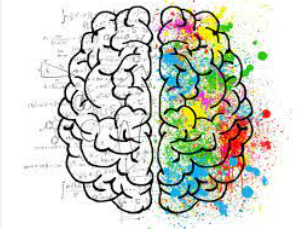Abnormal Psychology
Abnormal psychology is a branch of psychology that studies unusual patterns of behavior, emotion, and thought, which may or may not be understood as precipitating a mental disorder. It is the scientific study of abnormal behavior in order to describe, predict, explain, and change abnormal patterns of functioning.
Definition and Scope
Abnormal psychology is the study of abnormal thoughts, feelings and behaviors. Abnormal thoughts, feelings and behaviors may or may not be part of a larger mental illness, or psychopathology. Abnormal psychology studies the nature of psychopathology and its causes, and this knowledge is applied in clinical psychology to treat patients with psychological disorders.
The definition of what constitutes abnormal has varied across time and across cultures. However, there are some general criteria that have been suggested for identifying abnormality:
- Deviation from statistical norms
- Deviation from social norms
- Maladaptiveness of behavior
- Personal distress or disability
Abnormal psychology covers a broad range of disorders, from depression to obsession-compulsion to sexual deviation and many more. It aims not only to describe abnormal behavior, but also to understand and control such behavior.
History of Abnormal Psychology
The study of abnormal behavior has a long and fascinating history. Early supernatural explanations gave way to more naturalistic ones in ancient Greece and Rome. The Middle Ages saw a return to supernatural explanations. The 19th century saw a more scientific approach, with the development of the first classification systems for mental disorders.
Some key figures in the history of abnormal psychology include:
- Philippe Pinel (1745-1826): Often considered the founder of modern psychiatry, he advocated for humane treatment of mental patients.
- Sigmund Freud (1856-1939): Developed psychoanalysis as a method for understanding and treating mental disorders.
- Emil Kraepelin (1856-1926): Developed an influential classification system for mental disorders.
- B. F. Skinner (1904-1990): A pioneer in behaviorism, he believed abnormal behavior was learned and could be unlearned.
In more recent times, abnormal psychology has been influenced by the biopsychosocial model, which proposes that biological, psychological, and social factors all play a role in mental disorders.
Major Disorders Studied in Abnormal Psychology
Abnormal psychology deals with a wide range of disorders, which the Diagnostic and Statistical Manual of Mental Disorders (DSM-5) categorizes into several broad categories:
- Neurodevelopmental disorders (e.g., ADHD, autism spectrum disorder)
- Schizophrenia spectrum and other psychotic disorders
- Bipolar and related disorders
- Depressive disorders
- Anxiety disorders
- Obsessive-compulsive and related disorders
- Trauma- and stressor-related disorders (e.g., PTSD)
- Dissociative disorders
- Somatic symptom and related disorders
- Feeding and eating disorders
- Elimination disorders
- Sleep-wake disorders
- Sexual dysfunctions
- Gender dysphoria
- Disruptive, impulse-control, and conduct disorders
- Substance-related and addictive disorders
- Neurocognitive disorders
- Personality disorders
- Paraphilic disorders
Each of these categories includes several specific disorders. For example, depressive disorders include major depressive disorder, persistent depressive disorder (dysthymia), premenstrual dysphoric disorder, and others.
Causes of Abnormal Behavior
There are many different theories about what causes abnormal behavior. The main perspectives are:
- Biological perspectives: These focus on the role of genetics, brain chemistry, and other biological factors.
- Psychodynamic perspectives: These derive from Freud’s theories and focus on the role of unconscious conflicts, childhood experiences, and defense mechanisms.
- Behavioral perspectives: These focus on the role of learning and conditioning in the development of abnormal behavior.
- Cognitive perspectives: These focus on the role of thoughts and beliefs in abnormal behavior.
- Humanistic perspectives: These emphasize the role of free will and self-actualization in mental health.
Most modern theorists recognize that abnormal behavior is likely caused by a complex interaction of biological, psychological, and social factors.
Treatment of Abnormal Behavior
There are many different approaches to treating abnormal behavior, including:
- Psychotherapy: This involves talking with a mental health professional to gain insight into problems and learn coping strategies. Types of psychotherapy include psychoanalysis, cognitive-behavioral therapy, and humanistic therapy.
- Biomedical therapy: This involves the use of medications to treat mental disorders. Different types of medications are used for different disorders, such as antidepressants for depression and anxiolytics for anxiety disorders.
- Cognitive-behavioral therapy (CBT): This is a type of psychotherapy that focuses on changing maladaptive thoughts and behaviors. It is one of the most extensively researched forms of therapy and has been shown to be effective for a wide range of disorders.
- Electroconvulsive therapy (ECT): This is a procedure in which electric currents are passed through the brain to trigger a brief seizure. It is used to treat severe depression that has not responded to other treatments.
- Psychosurgery: This involves surgically removing or destroying brain tissue to treat mental disorders. It is rarely used today due to the development of less invasive treatments.


